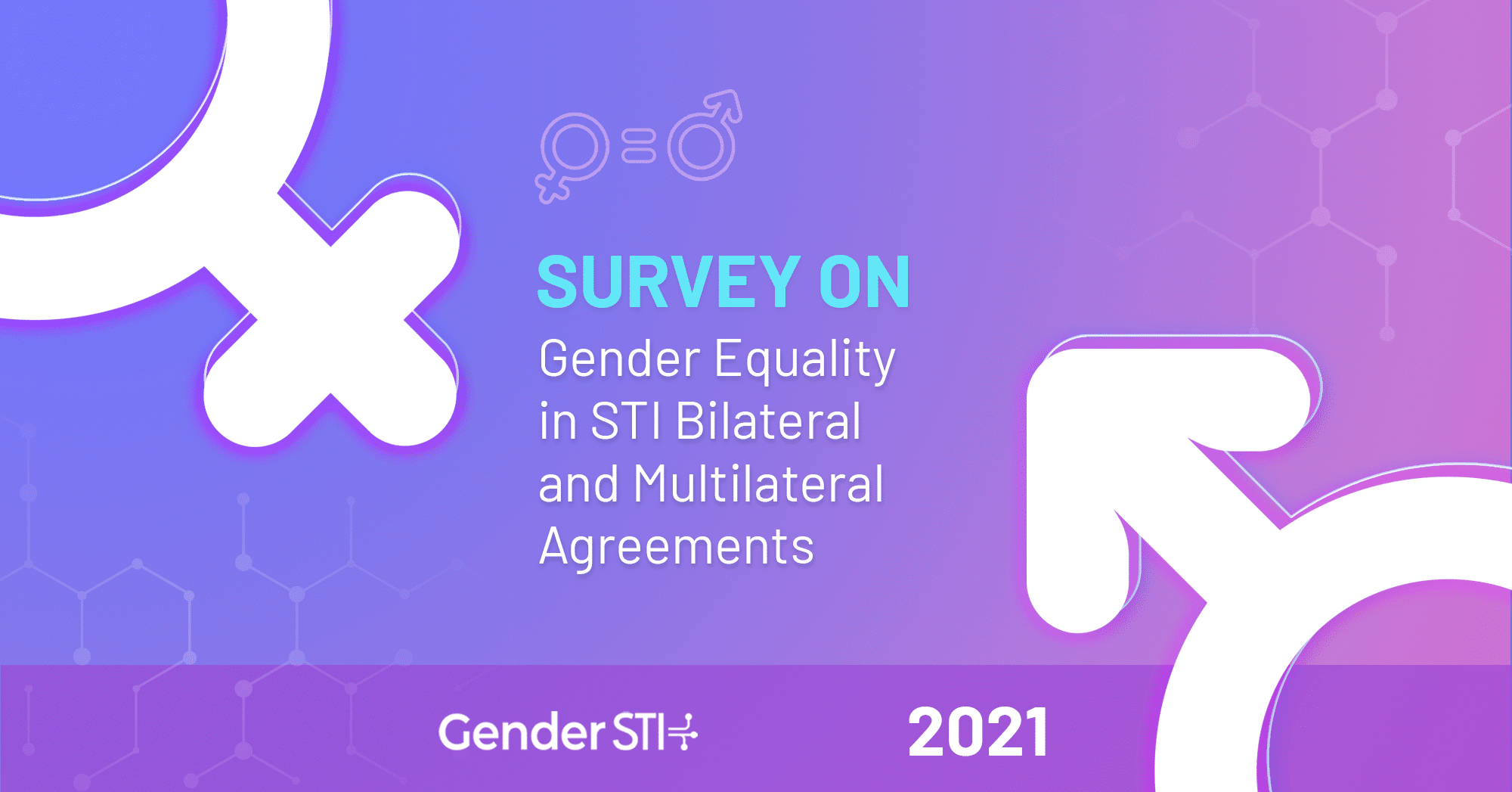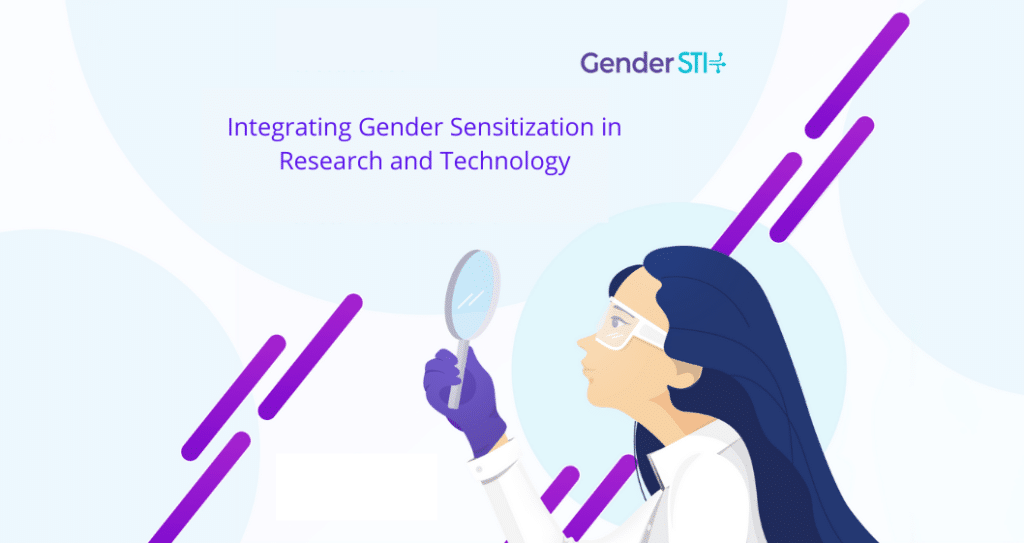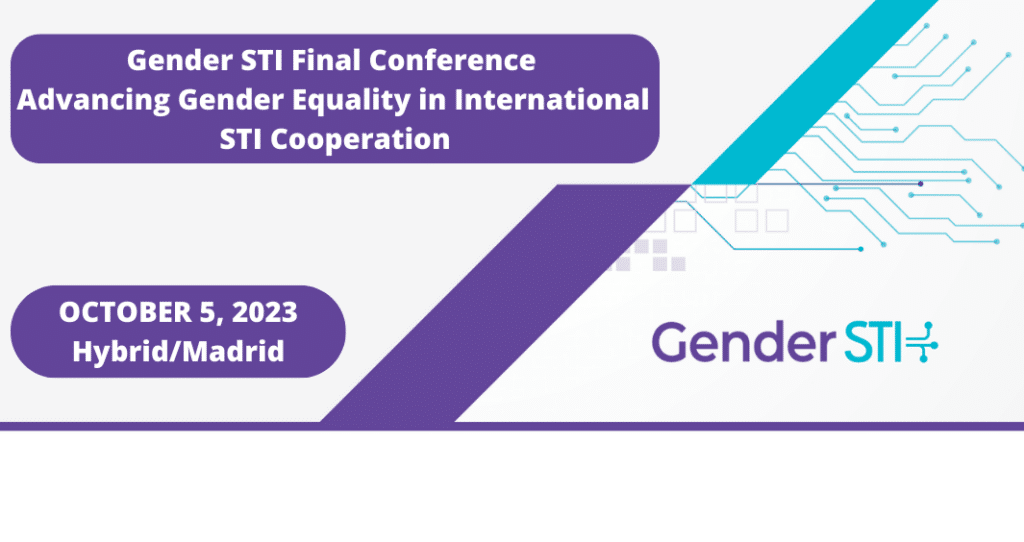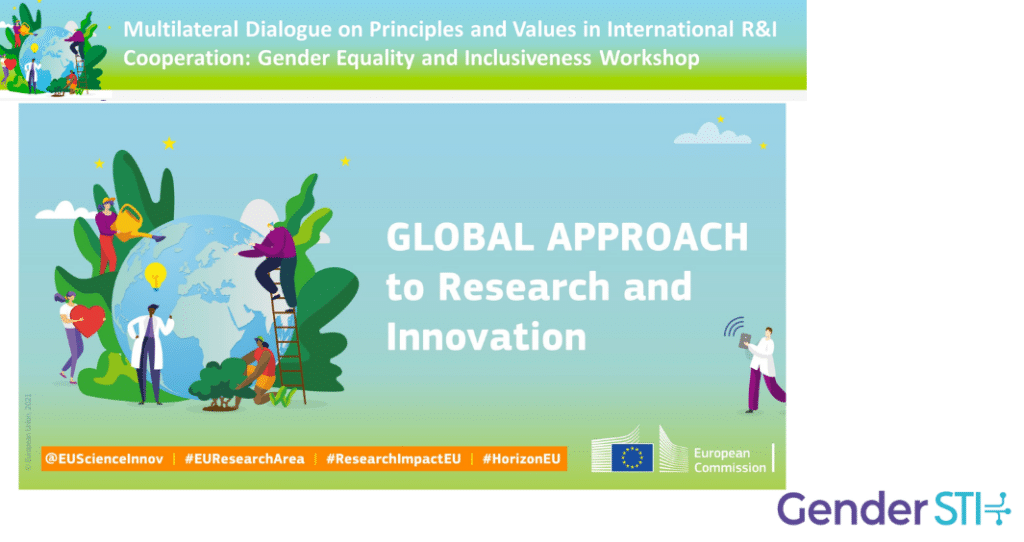The Gender STI project is releasing a report with the results from its “Survey on Gender Equality in STI Bilateral and Multilateral Agreements,” an international effort to assess the state of gender equality in international cooperation agreements in science, technology, and innovation (STI). The report represents the project’s first results and has been submitted to the European Commission for review.
The survey went sent out to approximately 1,450 key actors working on gender equality and STI from a variety of sectors, including government, funding organizations, public companies, and STI agencies and associations, among others, in Member States, Associated Countries, and the 10 third countries participating in the Gender STI project.
We received 204 responses during the period the survey was open from June to September 2021. Of those responses, 48.04% represented participants from Europe while 51.96% were respondents from third countries. All responses were anonymized, and the General Data Protection Regulation (GDPR) was observed to protect the privacy of survey participants.
The following are some of the key insights and conclusions about gender equality in STI bilateral and multilateral agreements gained from the survey. The insights are directly related to the project’s focus areas.
- On gender equality in scientific careers: In Europe, parental leave policies and flexible work schedule arrangements are more available to women. Meanwhile, in third countries, women are neglected in project management.
- On gender balance in decision-making: In third countries, gender quotas might be a more relevant means for reaching change than in Europe.
- On integrating the gender dimension in R&I content: In Europe, gender content in research design is more prevalent than gender balance and quotas in work environment.
A more detailed explanation of the insights presented above, as well as many others, are included in the project’s “Survey Report on Gender Equality Implementation in STI Bilateral and Multilateral Agreements.” The report is free to access and is available at the link and on the project's "Publications" section.
We welcome any feedback on the report from policymakers, the scientific community, or anyone interested in advancing gender equality in STI. If you have any comments, please comment on this post or email us at contact@gender-sti.org.



